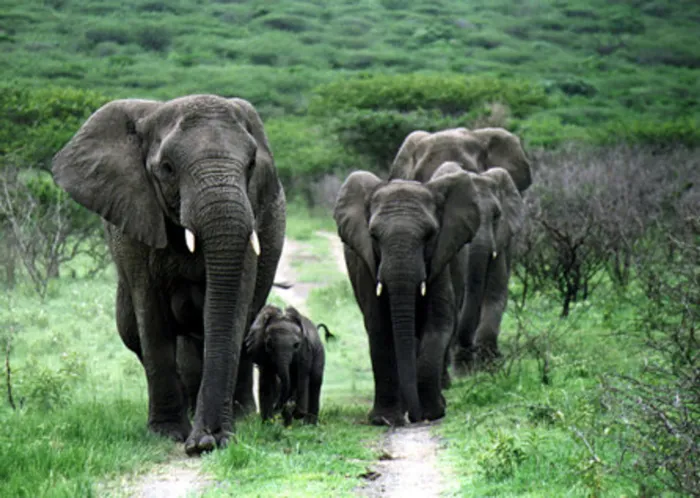Meat of 200 culled elephants to be given to people in need of food

Zimbabwe has defended its decision to cull 200 elephants, citing overpopulation and severe drought effects.
Zimbabwe has defended its decision to cull 200 elephants, citing overpopulation and severe drought effects.
Zim Parks claims this measure is essential for maintaining a sustainable elephant population, protecting other wildlife, and addressing human livelihoods.
The country, reported to have some 100 000 elephants, is the second country after Namibia to announce similar plans just two weeks apart.
Zim Parks said their decision was brought on by a severe drought and rising hunger levels leading to the culling of 200 elephants to protect communities and provide food aid.
According to Climate Newsroom, with around 84 000 elephants, the current population exceeds sustainable levels, leading to increased human-wildlife conflict. Despite opposition from animal rights groups, officials argue that the cull is necessary to protect the ecosystem and mitigate hunger risks.
Climate Newsroom’s Diana Harawa outlined Africa’s and Zimbabwe's priorities for COP29, saying: “We urgently need adaptation finance. African nations are facing the impacts of climate change in unique ways, and without adequate funding, we can’t effectively adapt to the future.”
ZimParks spokesperson Tinashe Farawo defended the culling of 200 elephants, saying wildlife protection measures cost the country in the region of R105 million to R123m annually, which it secured from various partners.
Farawo said Zimbabwe’s elephant population was over 84 000, nearly double its estimated capacity of 45 000, which made the country’s elephant population the second largest globally after Botswana.
Farawo said the meat will be distributed to people who were in dire need of food aid. The tusks would be stored as part of the a stockpile of 130 tons of ivory.
Farai Maguwu, the director of the non-profit Centre for Natural Resource Governance, called on government to implement eco-friendly ways of dealing with drought following widespread criticism of the culling exercise.
Some criticised the move to hunt elephants for food, not least because the animals are a major draw for tourists.
"Government must have more sustainable eco-friendly methods to dealing with drought without affecting tourism. The country is now at the risk of turning away tourists on ethical grounds. The elephants are more profitable alive than dead," Maguwu said.
ND TV World reported that, last week, Zimbabwe’s Environment Minister, Sithembiso Nyoni, told parliament that Zimbabwe had more elephants than needed and more than the forests could sustain, adding that elephant overpopulation led to resource shortages, intensifying human-wildlife conflict.
"When wildlife overpopulates a park, they venture beyond it in search of resources like water or vegetation. This brings them into contact with humans, sparking conflicts," Nyoni said.
siyabonga.sithole@inl.co.za
Saturday Star
Related Topics: